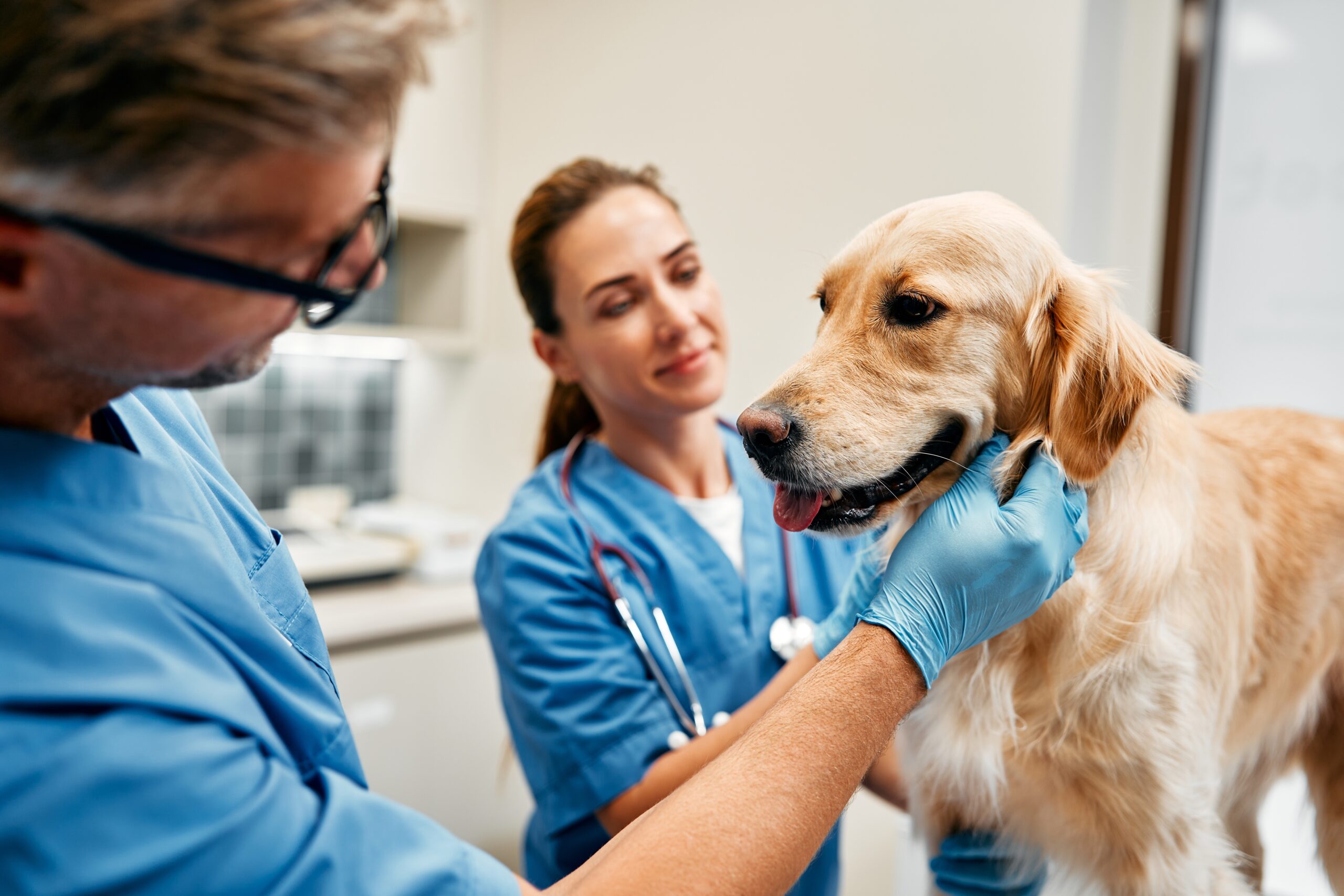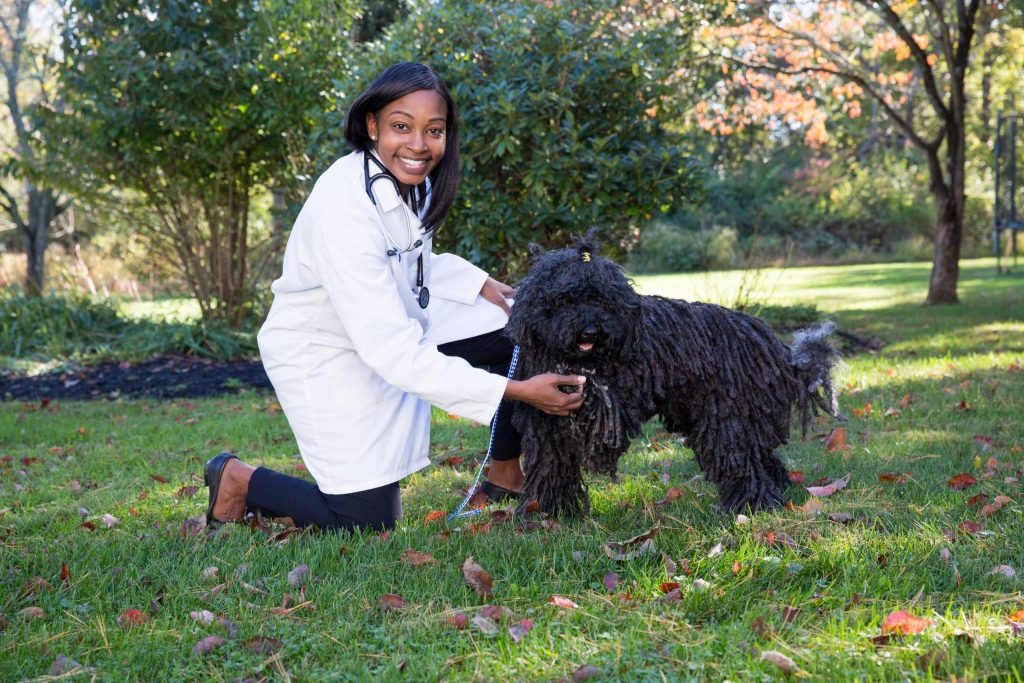Steps to locate the best Board Certified Veterinary Oncologist near you
Comprehensive Guide to the Services Provided by a Vet Oncologist
Vet oncology incorporates a wide range of services aimed at dealing with and detecting cancer cells in pet dogs. Veterinary Oncologist. Oncologists employ advanced diagnostic techniques and offer different therapy options customized to every animal's requirements. They also prioritize helpful treatment and provide important resources for pet proprietors. Comprehending these solutions is crucial for making informed choices. What specific facets of vet oncology can especially impact a pet dog's treatment journey?
Comprehending Veterinary Oncology
Vet oncology is a customized field concentrated on dealing with and detecting cancer cells in pets. This self-control encompasses a vast array of methods, from medical therapies such as radiation treatment and immunotherapy to medical treatments targeted at eliminating growths. Veterinary oncologists are trained to acknowledge the distinct symptoms of cancer in various types, allowing them to customize treatment plans to private people.
Along with traditional treatments, vet oncology stresses helpful care, which plays an important function in enhancing the lifestyle for affected pets. This includes pain monitoring, nutritional assistance, and palliative treatment choices. Cooperation with animal proprietors is important, as they are indispensable to decision-making regarding their family pets' treatment paths. As research study advances, veterinary oncology remains to evolve, using brand-new hope and improved results for pet dogs diagnosed with cancer. Generally, this area is fundamental for dealing with the intricacies of cancer cells in friend pets.
Advanced Diagnostic Techniques
Advanced diagnostic techniques play an important function in vet oncology, supplying essential insights into the existence and level of cancer cells in pets. Imaging modalities such as ultrasound, CT scans, and MRI are generally employed to visualize tumors and evaluate their attributes. In addition, biopsy treatments are necessary for getting cells examples, permitting clear-cut medical diagnosis and customized therapy strategies.
Imaging Modalities Utilized
Imaging techniques play a crucial duty in the medical diagnosis and administration of cancer in animals. Veterinary oncologists utilize numerous innovative imaging strategies to examine growth metastasis, size, and visibility. Radiography, or X-rays, uses a preliminary view of bone and upper body problems, while ultrasound offers real-time imaging of soft cells, permitting in-depth assessment of internal body organs. Computed tomography (CT) boosts visualization of complicated anatomical frameworks and enables 3D reconstructions, assisting in accurate lump localization. Magnetic vibration imaging (MRI) is indispensable for soft cells distinction, particularly in mind tumors. In addition, nuclear medicine strategies such as positron emission tomography (PET DOG) assistance recognize metabolic activity within lumps. Jointly, these modalities improve analysis accuracy, leading efficient therapy techniques for oncological people.
Biopsy Procedures Described
Following the preliminary analysis with imaging methods, obtaining a conclusive medical diagnosis typically calls for tissue tasting via biopsy procedures. Veterinary oncologists make use of various biopsy methods based upon the lump's location and attributes. Great needle aspiration (FNA) is a minimally invasive approach that removes cells for cytological evaluation, suitable for surface masses. Core needle biopsies provide larger tissue examples and serve for much deeper tumors, enabling histopathological analysis. Surgical biopsies include excising a part or the whole lump, helping with complete analysis. These treatments not just confirm the presence of cancer but also aid establish its kind and quality, leading therapy choices. Each biopsy strategy is picked carefully to stabilize analysis precision with individual safety and security and convenience.
Treatment Alternatives for Cancer in Pets
When a family pet is diagnosed with cancer cells, a range of therapy choices come to be offered to aid handle the condition and enhance lifestyle. Vet oncologists generally recommend a multidisciplinary strategy customized to the individual family pet's needs, which may consist of surgical procedure, radiation therapy, immunotherapy, or different therapies.
Surgical procedure is frequently used to remove growths and damaged tissues, potentially bring about complete remission sometimes. Radiation therapy intends to target and damage cancer cells, minimizing lump size and relieving symptoms - Veterinary Oncologist. Immunotherapy utilizes the family pet's body immune system to eliminate cancer cells more efficiently, while alternate therapies may consist of acupuncture or herbal supplements to support overall health
Each treatment choice brings its very own advantages and threats, and vet oncologists function very closely with pet dog owners to develop a complete strategy that straightens with the pet dog's details diagnosis and the proprietor's desires. The utmost goal is to improve the animal's comfort and lifestyle throughout their cancer journey.
Radiation treatment for Pets
Radiation treatment is a common treatment alternative for animals detected with cancer cells and is commonly made use of together with other therapies laid out by veterinary oncologists. This treatment entails the administration of particular drugs designed to target and damage cancer cells, thus decreasing growth size and preventing the spread of the condition. Veterinary oncologists customize radiation treatment procedures based on the kind of cancer cells, the animal's total health and wellness, and the preferred treatment result.
Side results can take place, as these medications might also influence healthy cells. Usual responses consist of queasiness, throwing up, and momentary changes in cravings - Veterinary Oncologist. Vet oncologists are geared up to take care of these negative effects properly, making sure the pet's comfort throughout the therapy process. Routine surveillance through blood examinations and follow-up consultations is necessary to analyze the animal's action to chemotherapy and make required changes. Ultimately, chemotherapy can supply substantial advantages, enhancing the lifestyle for pet dogs facing cancer diagnoses

Radiation Treatment in Vet Medication
Radiation therapy serves as an efficient therapy option for animals identified with local lumps, offering a targeted method to cancer management. This technique utilizes high-energy radiation to damage the DNA of cancer cells, preventing their capacity to multiply. It is specifically advantageous for growths that are not open to surgical removal or for situations where surgical procedure might not be viable as a result of the tumor's location.
Vet oncologists customize radiation methods based upon lump size, type, and location, along with the pet dog's general health. Therapy can be delivered using external beam of light radiation or brachytherapy, each with distinct advantages. Usually, several sessions are required to take full advantage of efficiency while reducing see negative effects.
Although animals may experience short-lived responses such as skin inflammation, the overall aim is to reduce growths and reduce symptoms, inevitably enhancing the pet's diagnosis and high quality of life. As necessary, radiation therapy plays a necessary duty in extensive cancer cells care.
Palliative Treatment and Quality of Life
Palliative treatment in vet oncology focuses on boosting the lifestyle for pet dogs facing terminal health problems, ensuring comfort and self-respect in their last days. This customized technique focuses on discomfort management, signs and symptom control, and psychological support. Veterinary oncologists assess each family pet's specific needs, customizing interventions to reduce pain and enhance overall wellness.
Methods may consist of providing medicines for discomfort relief, managing nausea, and attending to various other distressing signs. Furthermore, dietary assistance is often offered to preserve stamina and improve hunger. The psychological element of palliative treatment is similarly vital; developing a tranquil setting helps in reducing stress and anxiety for both family pet and proprietor.
Eventually, the objective of palliative care is to enable animals to enjoy their remaining time with as much joy and dignity as feasible. By concentrating on convenience and top quality of life, veterinary oncologists play a necessary function in making sure that family pets and their households navigate this tough trip with empathy and understanding.
Support for Pet Owners Throughout Therapy

Emotional Guidance for Proprietors
Charting the emotional landscape throughout an animal's cancer cells treatment can be a frustrating experience for owners. The unpredictability surrounding medical diagnosis and prognosis can bring check these guys out about feelings of despair, vulnerability, and anxiety. Veterinary oncologists recognize the significance of psychological support and typically provide support to assist owners navigate this hard trip. Communication is necessary; talking about treatment alternatives and prospective results can reduce some worries. In addition, offering confidence that psychological responses stand fosters a helpful atmosphere. Lots of oncology facilities might likewise recommend support system or therapy services tailored for animal proprietors, facilitating common experiences. Motivating proprietors to focus on self-care throughout this time around is important, as their psychological health directly affects their family pet's convenience and overall treatment experience.

Resources and Educational Materials
Guiding via the intricacies of a family pet's cancer treatment can be daunting for owners, making access to academic materials and dependable resources crucial. Veterinary oncologists often offer a range of handouts, pamphlets, and online materials that describe therapy choices, potential negative effects, and treatment techniques. These resources help equip and debunk the process animal proprietors to make enlightened decisions. Furthermore, lots of oncology clinics offer access to sustain groups and forums where owners can this article attach with others encountering comparable challenges, fostering a feeling of community. Educational workshops and webinars conducted by veterinary professionals better improve understanding, making certain that proprietors are well-equipped to browse their pet dog's trip through cancer cells treatment with confidence and expertise.
Regularly Asked Concerns
Exactly How Can I Prepare My Pet Dog for a Veterinary Oncology Browse Through?
Preparing a family pet for a vet oncology go to entails event clinical documents, keeping in mind signs, and guaranteeing the animal fits. A tranquil disposition and familiar products can aid ease stress and anxiety throughout the appointment.
What Are the Indications My Pet Dog May Have Cancer Cells?
Indications that an animal might have cancer consist of unusual weight loss, persistent throwing up or looseness of the bowels, uncommon swellings or swellings, sleepiness, modifications in appetite, difficulty breathing, and modifications in habits. Motivate vet interest is vital.
Exactly How Can I Assistance My Pet Dog Emotionally Throughout Therapy?
Supporting a family pet emotionally during therapy entails giving convenience, preserving routines, supplying mild affection, and guaranteeing a calm setting. Participating in peaceful play and regular friendship assists ease tension and fosters a feeling of safety.
Are There Alternative Treatments for Animals With Cancer?
Alternative treatments for animals with cancer cells include acupuncture, organic treatments, and dietary support. These approaches might complement standard treatments, advertising overall health. Consulting with a veterinarian is crucial for risk-free and effective combination of different therapies.
What Prices Should I Anticipate for Vet Oncology Services?
The expected costs for veterinary oncology solutions can vary substantially, typically affected by diagnostics, treatments, and recurring care. Family pet owners must prepare for costs varying from assessments to specialized treatments, reflecting the intricacy of cancer administration.
Cooperation with animal proprietors is crucial, as they are important to decision-making concerning their pets' treatment paths. Each therapy alternative carries its own advantages and dangers, and veterinary oncologists work closely with family pet proprietors to create an extensive strategy that straightens with the pet dog's specific diagnosis and the owner's wishes. Animals may experience short-lived reactions such as skin irritation, the general goal is to diminish growths and ease signs and symptoms, inevitably boosting the pet dog's diagnosis and high quality of life. Assistance for animal owners during treatment is essential in guiding via the psychological difficulties connected with a pet dog's cancer cells medical diagnosis. Preparing a family pet for a vet oncology go to includes event medical documents, keeping in mind signs, and making sure the animal is comfortable.